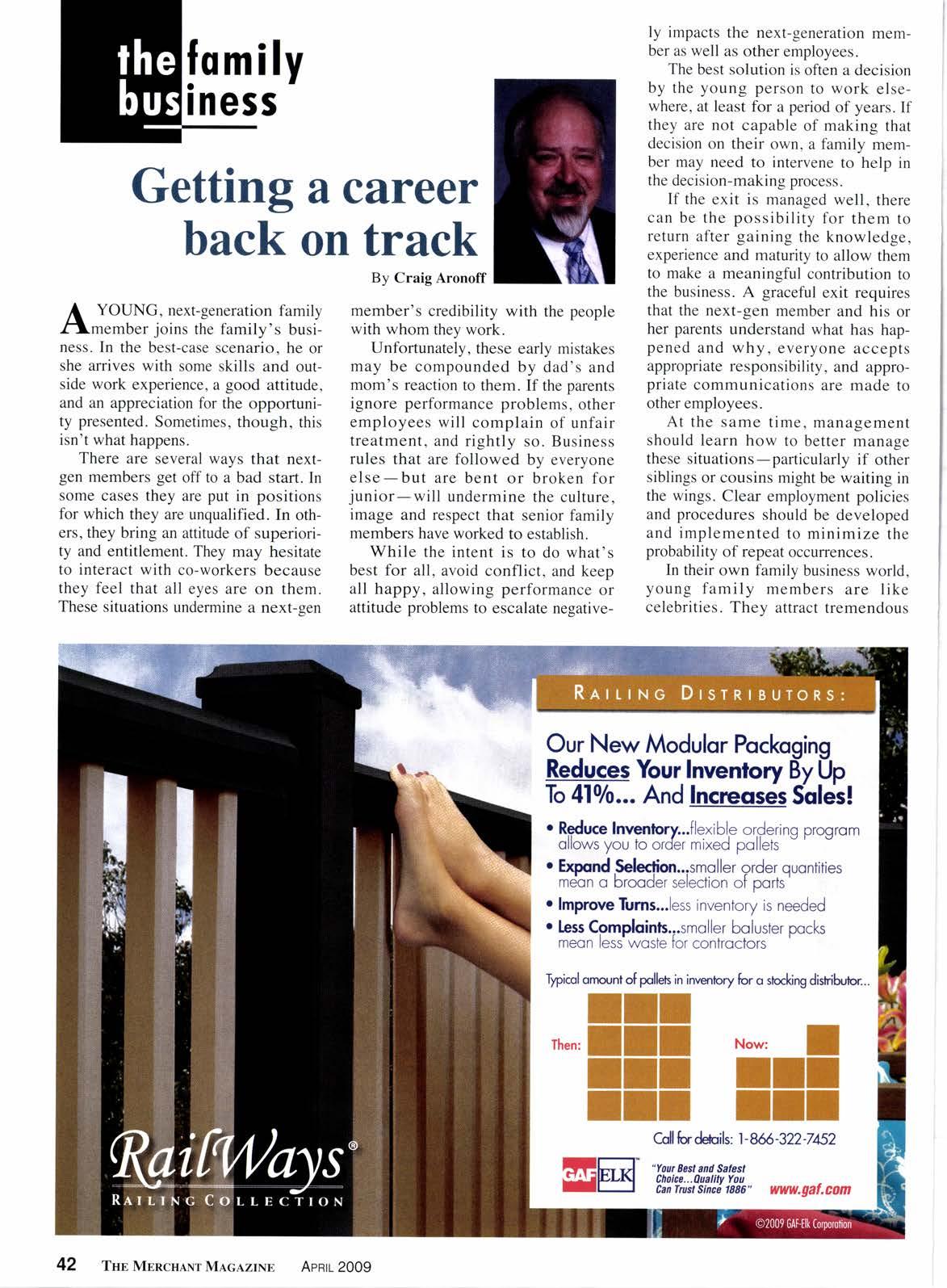
3 minute read
Great sales managers walk the walk
By James Olsen
SALES managers are pulled from \)the top and the bottom. Most often. sales managers are given informational directives from upper management that could be handled by a $12-anhour employee or by upper management themselves!
Many sales managers have gone into sales management because they no longer have the desire to sell. They hide behind non-sales growth activities. It is difficult to lead and motivate a sales team when they know you don't want to, or can't, sell with them!
Great sales manager possess a complex set of skills. They know how to sell. They know how to lead. Leadership takes emotional sensitivity and internal fortitude. The great sales manager cannot be too hard or too soft-a delicate mix. They must manage. More than the salesman on one side or the operations man on the other, the sales manager must know who, what and how we are selling and why.
In the field
Spending time in the field-selling alongside our team-is the one activity, more than any other, that will:
Lead and motivate
. Drive sales growth
. Get valuable information back to upper management.
Retain key customers as company assets. Many companies are held hostage by salespeople on key accounts. The salesperson is the only one who pays attention to the account, so that's where the account's loyalty lies. Sales managers should have a personal relationship with the customers who represent his "Pareto's Peak." Of the total number of accounts being sold, 20Vo represent 8070 of the profit. Sales managers must have a great relationship with this group.
(Note: Having a non-salesperson as a sales manager won't work. There may be the odd person who hasn't had to develop a territory and support his or her family over a period of years as a salesperson, who can lead a sales team, but this is a high-risk hire. Not all good salespeople make good sales managers, but possessing all the other skills needed to be a sales manager, without being able to sell, just won't work.)
Lead and manage current sales force
1. Activity management and leadership. Good sales managers know what activities their sales team is executing on a daily basis. There are many "false friends" in the sales game. These are activities that look like sales activities but don't lead to sales. Good sales managers make sure their team is spending time on the right activities to maximize sales.
2. Emotional management. Salespeople need to talk to someone about business, motivation, personal problems, goals, dreams, and the great sales call they made or the tongue lashing they took. Going to lunch with the member of your sales team-not a review lunch,just a lunch to talk about what the salesperson wants to talk about-is part of great sales management.
3. Search and find sales talent. Working with HR or on their own, great sales managers must find sales talent.
4. Drive sales per company directives. It is not enough to sell; sales managers direct sales efforts per com- pany directives.
5. Work with credit, operations, purchasing and other parts of the company to drive sales.
Most sales managers spend 507o of their time communicating with upper management-reports, meetings and discussions. Few spend time selling with their team. Even fewer reach SOVol The leaders/managers who do spend the time in the field will create results and loyalty that many talk about but few achieve.
Below is a chart that shows the difference in time spent between how great sales managers lead and how the rest spend their time.
GreatManagers TheRest
In the field 5070 5-10%
Lead team 1V/' (some done in field)
Communicate 10To w/purchasing (some done
Too much or too little 1.2To or too much in field)
Communicate 10-15o/o 50o/o Wupper mgt.
Communicate 10% 1o/o w/operations
Communicate 5To w/credit
Communicate 1-5% w/rest
Too much or too litlle (War or ignore)
Too much or too little
There are few perfect sales managers, but the road to great sales management begins in the field selling alongside our team.
- James Olsen, Reality Sales Training, specializes in sales training for the lumber industry. Reach him at james@realitysalestraining.com or (503 ) 544-3572

Itr/ITH April comes Earth Day and V Y a host of local events all over the country and of every description, from creek cleanups to huge music festivals. The media is full of green stories and more people than ever want to know about green building, saving energy, solar and wind power, retrofitting, etc.
But often overlooked and underreported is the water crisis and what homeowners and builders can do about it. While those in regions used to drought and limited fresh water supplies might be prepared, communities in regions just coming into drought could use some help in becoming more water self reliant. For retailers, this represents an opportunity











